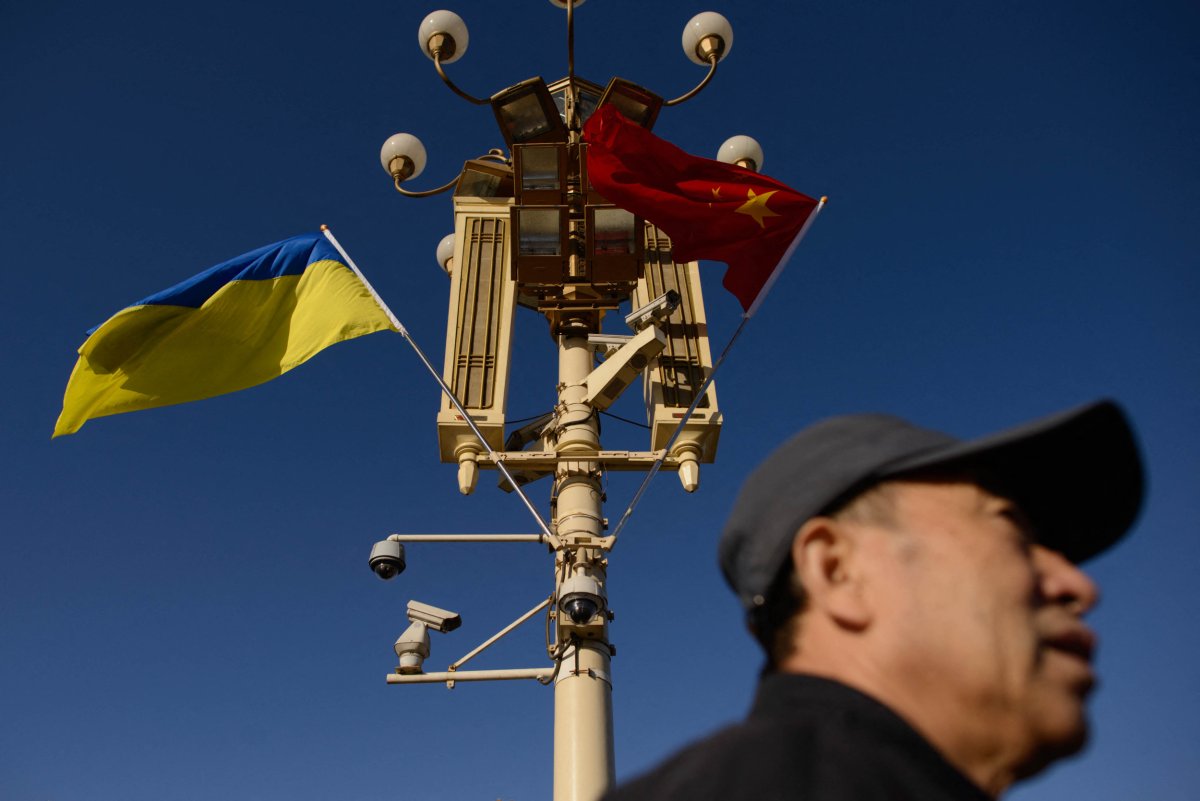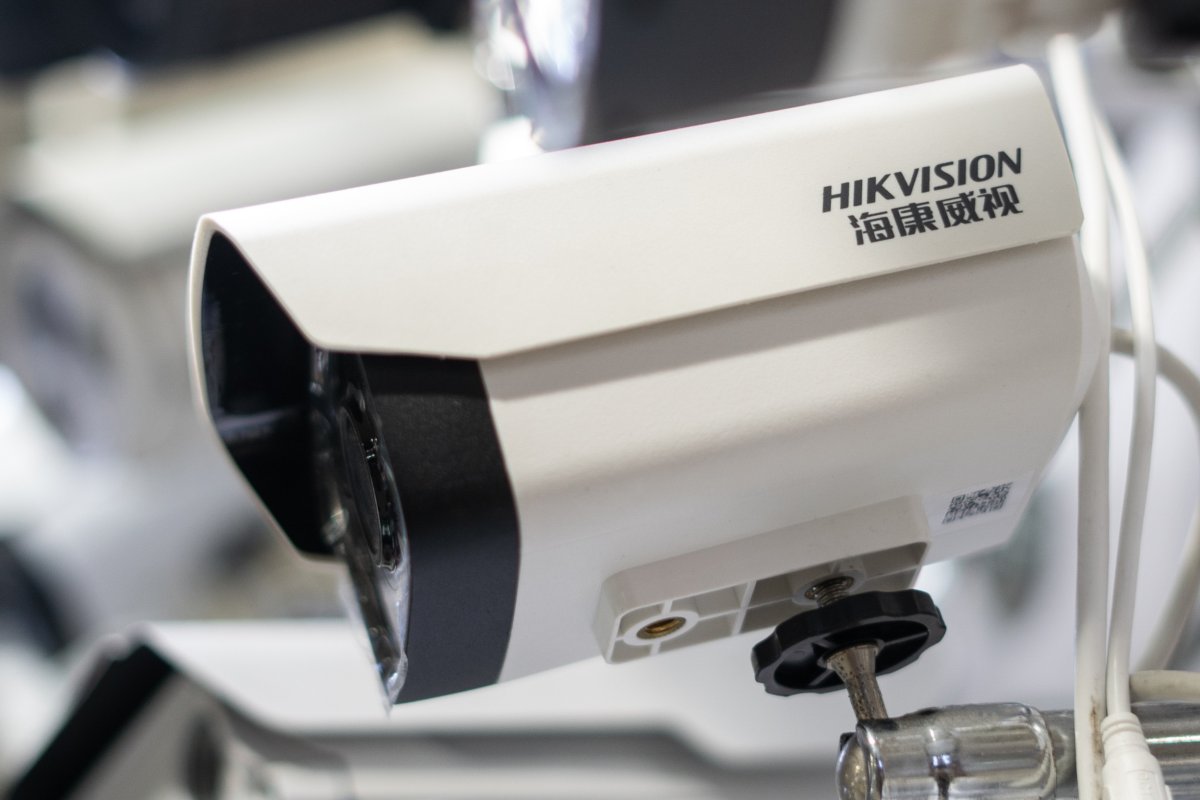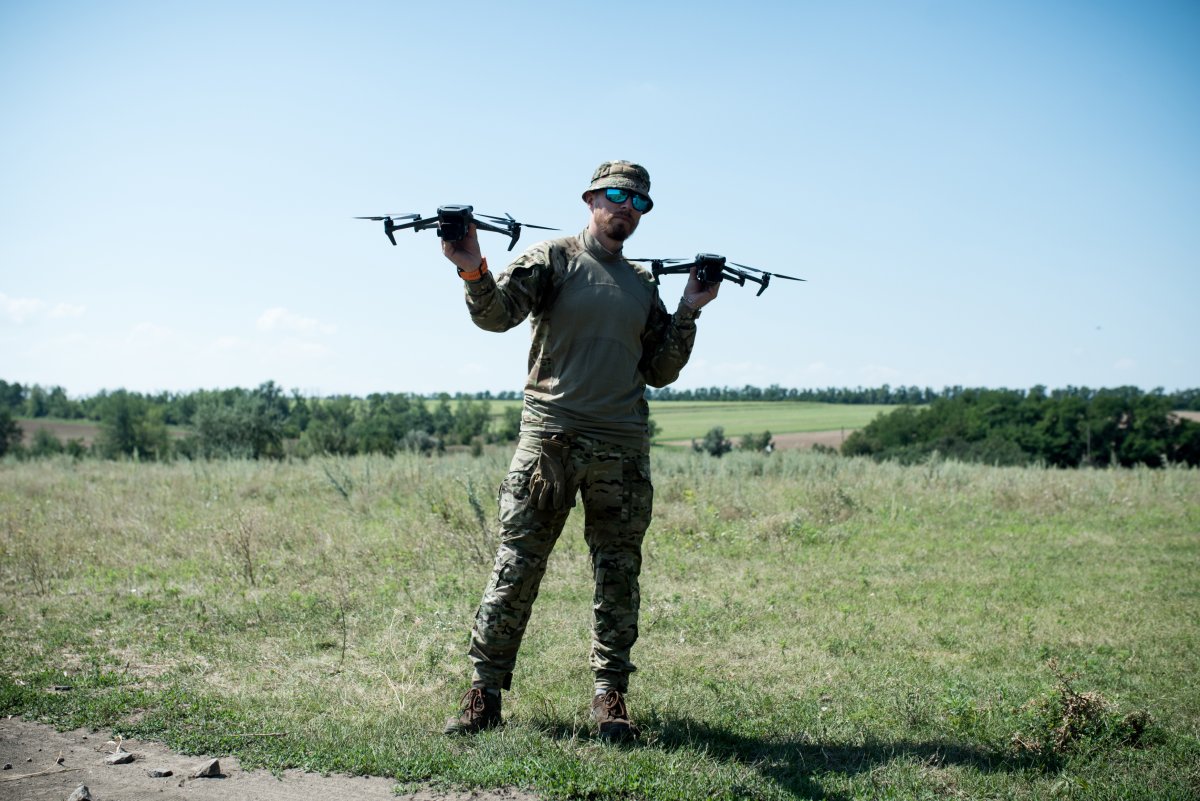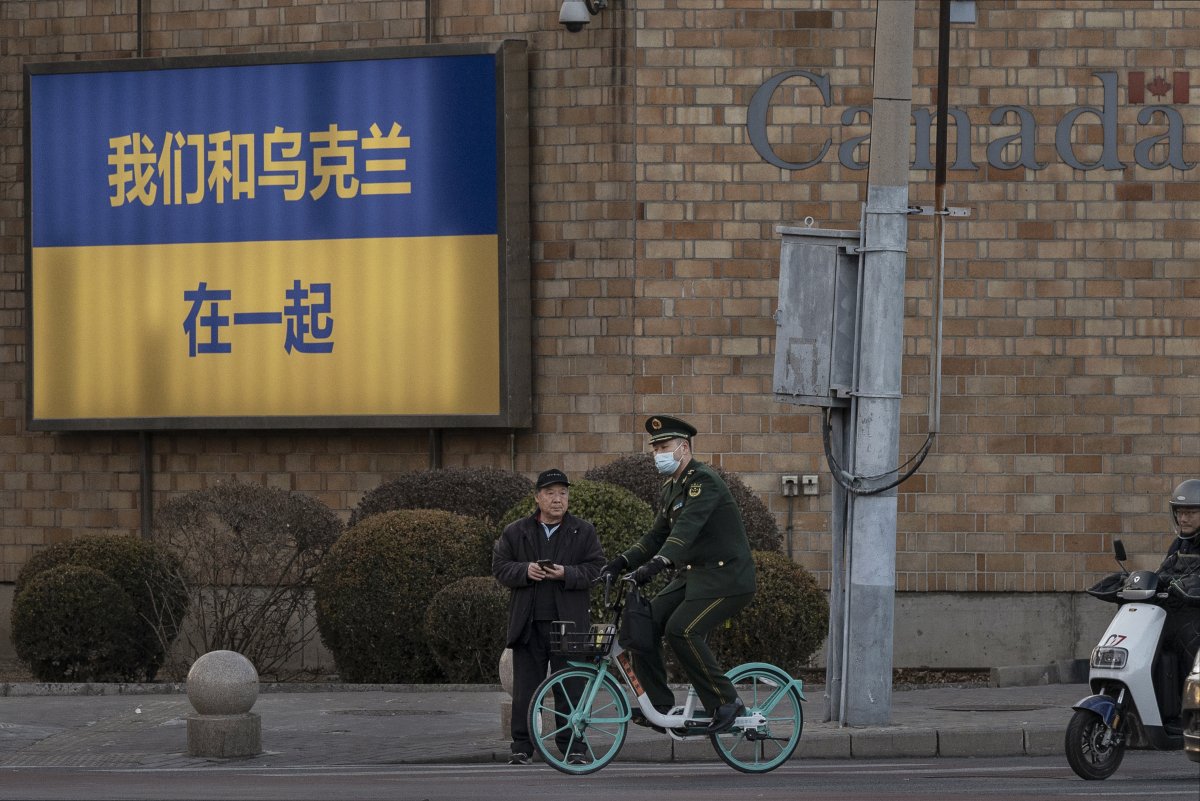The simmering conflict between the United States, its allies, and China and Russia appears to be bleeding into Ukraine's existential fight against the Kremlin's invasion as Ukrainian authorities act against Beijing-backed mega-corporations blacklisted for assisting Moscow's war.
Newsweek has uncovered new details of a landmark decision blocking a Ukrainian company associated with a Chinese technology giant from doing business with a regional authority due to concerns over Beijing's close relationship with Moscow and potential undue Chinese influence.
The case may set an important precedent for rolling back decades of Beijing's growing commercial presence in Ukraine if Kyiv deems the cost and risk worthwhile.
Ukraine's Anti-Monopoly Committee (AMCU) confirmed to Newsweek it had upheld a decision by the Zolochiv Village Council—which oversees an area in western Lviv Oblast close to the Polish border—to exclude Hikvision partner Engineering-Analytica LLC from a public surveillance technology contract worth around $15,000 earlier this year.
An AMCU spokesperson told Newsweek that Engineering-Analytica submitted a complaint to the body alleging that Zolochiv Village Council "set discriminatory requirements" in its tender process related to its partnership with Hikvision and the inclusion of the Chinese company on the National Agency on Corruption Prevention (NACP)'s sponsors of war list.
"The AMCU's commission ultimately decided to dismiss the complaint," the agency spokesperson said. The Zolochiv Village Council did not respond to multiple Newsweek requests for comment sent via email and social media.
A spokesperson for Engineering-Analytica told Newsweek that the NACP's list is unconstitutional, and Hikvision's inclusion on it was a result of "distorted facts."
"We believe that all actions related to blocking the participation of Hikvision products in public procurement are not state policy defined by law, but are solely the initiative of certain officials, whose motives we cannot judge," they said.
Tech Tug of War
China was Ukraine's biggest trading partner before the war. But bilateral relations have been undermined by Beijing's refusal to explicitly condemn Moscow's invasion and President Xi Jinping's continued close cooperation with President Vladimir Putin. China has framed itself as a neutral arbiter, but Ukrainian diplomats and lawmakers have previously told Newsweek that Beijing's stance is more akin to "pro-Russian neutrality."
Kyiv is walking a tightrope between China and its Western partners, economic and military aid from which has been instrumental in Ukraine's survival. The U.S. in particular is seeking to freeze China's technology mega-corporations—such as Huawei and ZTE—out of its domestic markets and is pushing its European allies to follow suit.
While looking for any way to advance its NATO and European Union membership ambitions, some in Ukraine see the U.S. showdown with China as an opportunity.

"To limit the Chinese influence is first of all in the interests of Ukraine, in the interests of our security," Oleksandr Merezhko, a member of the Ukrainian parliament and the chair of the body's foreign affairs committee, told Newsweek. "Additionally, it will bring us closer to the U.S. It will show that Ukraine is a reliable ally of the U.S."
The AMCU told Newsweek it has not yet ruled on any other complaints from companies excluded from public procurement bids due to their links with Chinese companies. But Zolochiv's face-off with Engineering-Analytica could be the first of many such cases in the future if Kyiv is committed to stalling, or even reversing, China's technology footprint in the country.
This question will become more pressing as Ukrainian authorities look to rebuild the country's devastated infrastructure. Contracts with Chinese firms will likely prove cheaper than with Western competitors but might leave Kyiv open to Beijing's influence, plus unsettle Ukraine's vital Western backers.
The U.S., United Kingdom and European Union have all taken steps to ban or limit the use of Hikvision technology, along with the products of other large Chinese technology companies.
There is some evidence of this Western push already. Newsweek obtained a March 2023 procurement notice issued by U.S. company Chemonics International Inc. on behalf of the British Foreign Office as part of the Partnership Fund for a Resilient Ukraine. The invitation sought bidders "for the supply of construction materials for lighting and poles."
"Any and all items that are made by Huawei Technology Company, ZTE Corporation, Hytera Communications Corporation, Hangzhou Hikvision Digital Technology Company, Dahua Technology Company will not be accepted," the notice read. "If tenders include items from these entities, please note that they will be deemed not technically responsive and excluded from competition."

Asked about that and other notices, the British Foreign Office told the i newspaper earlier this year that Chemonics was responsible for procurement negotiations and, as an American company, was "required to comply with any relevant US policy and regulations."
Newsweek reached out to Chemonics via email for comment.
Some in Ukraine have decided it best to draw from the vast resources on offer from China, given the country's dire economic and military position. Kyivstar—the country's largest telecommunications firm—for example, has already committed to rebuilding its mauled network with $600 million in Chinese technology. A sudden swap to Western alternatives, its CEO told Bloomberg in June, would be "impossible."
Excoriating Chinese influence would mean reversing years of extensive procurement from Hikvision and Dahua, which is also on the NACP's list. Both are used extensively in Ukraine's "Safe City" project, which has greatly expanded governmental surveillance networks in settlements nationwide.
Military-minded observers have also warned that taking too hard a line against China and its largest technology companies might choke the supply of much-needed commercial drones for troops on the battlefield.
Ukrainian troops are already having to grapple with shortages due to new export controls imposed by Beijing and fear falling behind their Russian enemies in the ever-evolving UAV arms race.

Ukraine's China 'Paradox'
Oleksii Kupriienko—part of the "Don't Fund Russian Army" organization and the founder of the "Underdog" legal watchdog—told Newsweek that the Zolochiv decision could prove a landmark moment but added it is unlikely to set off an imminent chain reaction of similar cases.
"The case is really brilliant," said Kupriienko, who has previously denounced Chinese surveillance technology as a "Trojan Horse" inside Ukraine. But Hikvision is at the center of a governmental "paradox," Kupriienko added.
"The NACP proclaimed the company as a war sponsor, with clear evidence of it being okay with Russian aggression in Ukraine and continuing doing business with Russia, and even more, giving them military support," he said. "But for some strange reason, Ukrainian governmental bodies are eager to buy this equipment. This is really a very strange situation for a country which is at war."
Decision makers, Kupriienko said, are limited by budget concerns and the existing reliance of many authorities on Chinese technology networks, particularly as part of the Safe City initiative. "That is why they just continue what they have done for years and years," he said.
Kupriienko and others have been citing the Zolochiv decision in their bid to shift other governmental authorities away from Chinese technology.
"Unfortunately, I cannot tell you that we were successful," he said. "But I think we have taken an important step forward."

Pressure from Europe and the U.S. to ice out Beijing's companies, though, could prove pivotal, Kupriienko added. "I'm pretty sure this will happen."
A Hikvision spokesperson told Newsweek it had no direct involvement in the proposed Engineering-Analytica deal.
"Hikvision has three distribution partners in Ukraine and Engineering-Analytic LLC is not one of them," the spokesperson said. "Engineering-Analytic LLC is a local integrator, not a distributor."
The spokesperson disputed the NACP assertion that Hikvision is a sponsor of the war. "To help alleviate the devastating impact of this conflict, Hikvision has contributed humanitarian aid to the Red Cross in Poland to support Ukrainian refugees," they said.
"Since the designation, media outlets and local politicians—including from the Lviv Regional Council—have criticized the unjustified decision to include Hikvision on the list because, among other reasons, the company provides essential equipment to Ukrainians throughout the country."
"It is important to emphasize that the designation does not legally restrict the sale of Hikvision products. Still, many Ukrainian policymakers are concerned that local public procurement officers could misunderstand the designation and suspend planned purchases of Hikvision products that Ukraine needs."
Uncommon Knowledge
Newsweek is committed to challenging conventional wisdom and finding connections in the search for common ground.
Newsweek is committed to challenging conventional wisdom and finding connections in the search for common ground.
About the writer
David Brennan is Newsweek's Diplomatic Correspondent covering world politics and conflicts from London with a focus on NATO, the European ... Read more
To read how Newsweek uses AI as a newsroom tool, Click here.






